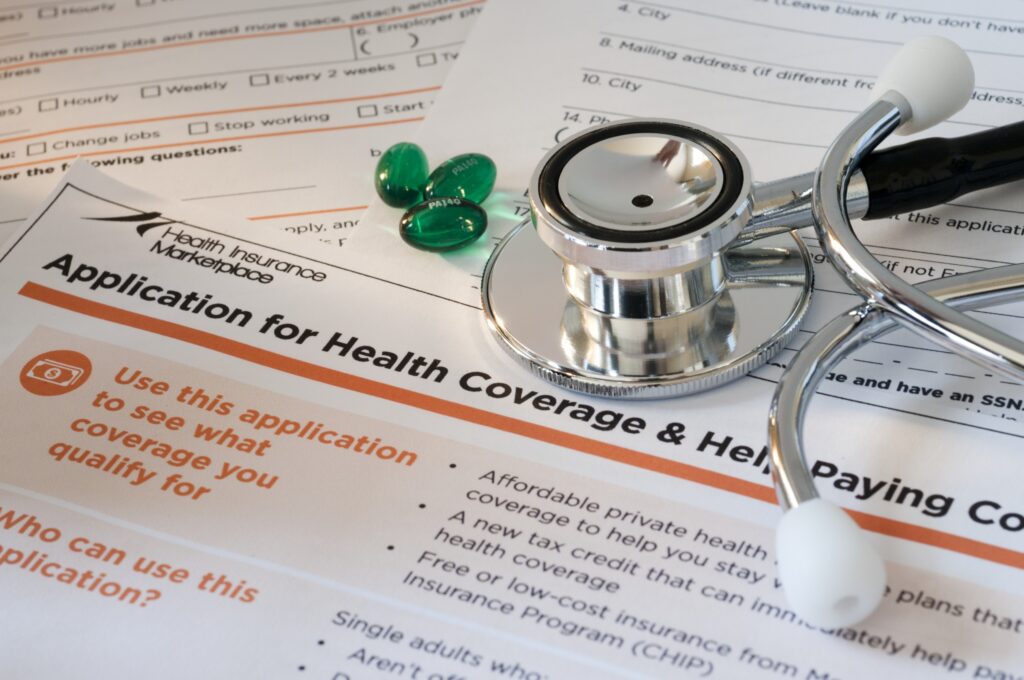Rhode Island officials predicted in 2013 up to 100,000 Ocean State residents would use the state-based exchange established under the Affordable Care Act to buy health insurance. In the end, however, only 27,961 people enrolled during the 2014 open enrollment period, a number that declined throughout the year as many enrollees either failed to pay their first premium or later dropped coverage.
Newly released information on the number of Rhode Islanders signing up during the current open-enrollment period, which ends on February 15, suggest the state continues to struggle in its efforts to attract residents to the exchanges.
According to data from HealthSourceRI, as the exchange is called, as of January 17 only 28,789 people had signed up for health coverage through the exchange. That number is divided between 7,660 new enrollees and 21,129 returning customers who had obtained coverage on the exchange in 2014.
Of the 28,789 enrollees as of January 15, 24,106 had paid their premiums.
“The exchange is falling far short of expectations, especially in lieu of the fact that it is costing the state tens of millions of dollars to operate,” said Gary Alexander, former Rhode Island Secretary of Health and Human Services. “When presenting a program that will cost tens of millions of dollars and that is clearly unaffordable to the taxpayers, it would be better for public policy makers to present conservative numbers so that legislators and the citizenry can evaluate the pros and cons [based on the merits].”
Great Expectations, Poor Results
Prior to launching HealthSourceRI, then-exchange director Christine Ferguson frequently touted her expectation that between 70,000 and 100,000 residents of the Ocean State would obtain health insurance coverage through the exchange. An earlier assessment by MIT professor Johnathan Gruber estimated 91,000 Rhode Islanders would get covered through the exchange, including the small business exchange.
Despite not coming close to their original goals, Rhode Island’s exchange leaders still tout the numbers as a success. A letter from Ferguson to then-governor Lincoln Chafee in November 2014 requesting funding for the exchange’s operations in 2015 stated, “27,961 Rhode Islanders had enrolled in coverage through the individual marketplace, more than doubling federal enrollment estimates.”
Ferguson continues to tout the 100,000 enrollee assumption as well. The letter to Chafee uses 100,000 enrollees as the basis for its financial calculations, which the Providence Journal reported in a November 19 story is the “projected 2017 enrollment target.”
“I’m not sure why 100,000 enrollees continues to be used as a projection,” said Mike Stenhouse, president of the Rhode Island Center for Freedom and Prosperity. “It should be very clear by now that there is little chance of achieving that.”
Funding in Doubt
Rhode Island’s exchange also faces a problem finding funding for its operations. It was created by executive order from Chafee, and no legislative appropriation or financing mechanism has been implemented. The exchange anticipates spending $27.68 million in the next fiscal year, of which approximately $9 million will consist of federal funds.
Rhode Island faces a $200 million budget shortfall in 2015, making it unclear where the state will find the remaining funds for the exchange. Assessing a fee on exchange-based plans to cover the operating costs would add nearly $600 to the cost of each plan, based on current enrollment, making coverage unaffordable for many Rhode Islanders.
One solution has been offered in legislation introduced in 2014 by Rep. Patricia Morgan (R-West Warwick) that would prohibit the use of any taxpayer dollars to fund Rhode Island’s exchange and thus turn operations over to the federal exchange. The bill drew bipartisan support, with several Democrat lawmakers signing on.
“There is a perfectly good platform called the federal exchange,” Morgan said. “It is less expensive than Healthsource RI. Using it avoids duplication. And it doesn’t add another burden to our business climate.” Morgan intends to file similar legislation in 2015.
Sean Parnell ([email protected]) is managing editor of Health Care News.





